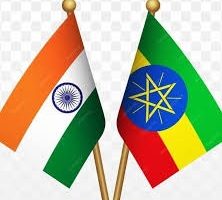
BY ADDISALEM MULAT
The progress that Ethiopia has made towards implementing the Pretoria Peace Agreement is significant and praiseworthy. Despite the fact that there is still a lot of work that needs to be done, the Ethiopian government’s commitment to achieving peace, stability, and sustainable development is evident. The steps taken by the government to address past injustices, provide humanitarian aid, integrate former rebels into the army, and promote inclusive policies are commendable.
The government’s commitment to bringing justice for victims of past human rights abuses shows its dedication towards reconciliation and healing. By establishing a commission dedicated to investigating these crimes, the government is taking a significant step towards confronting the country’s past and moving towards a more just and peaceful future. In addition, the government’s provision of humanitarian aid highlights its commitment to improving the conditions of the most vulnerable members of society.
The Ethiopian government has been working with international humanitarian organizations to provide relief to refugees and internally displaced persons who have been affected by conflict and other challenges. Another commendable achievement of the government is its efforts to integrate former rebels into the army. This will not only help to bring an end to the conflict but provide former rebels with an opportunity to become productive members of society.
The government’s promotion of inclusive policies demonstrates its commitment to ensuring that everyone in the country has an equal chance to participate in the country’s development. Ethiopia’s progress towards implementing the Pretoria Peace Agreement is a significant achievement that should be celebrated. The government’s unwavering commitment to peace, stability, and sustainable development through addressing past injustices, providing humanitarian aid, integrating former rebels into the army, and promoting inclusive policies should inspire and offer hope for a peaceful, just, and prosperous future for all Ethiopians.
The two-year conflict in Ethiopia had far-reaching consequences, causing immense harm to the people of Tigray and posing a threat to the stability and unity of Ethiopia and the Horn of Africa region. While the conflict has ended, the work to address the damage caused and prevent future conflict remains ongoing. The signing of the agreement signals the country’s commitment to resolving its internal conflict through peaceful means while upholding its constitution and preserving its sovereignty. This move reflects Ethiopia’s support for peaceful and diplomatic solutions to disputes, demonstrating its willingness to engage in constructive dialogue with all parties to find a resolution to the conflict.
By signing the agreement, the country also acknowledges the significance of African solutions to African problems. This underscores the importance of taking a regional approach to resolving conflicts recognizing the role and legitimacy of the African Union as a continental organization capable of facilitating dialogue and mediation amongst its member nations. This highlights Ethiopia’s commitment to regional peace and security and its recognition of the importance of working collaboratively.
Ethiopia’s agreement to sign this peace accord demonstrates the country’s leadership and its commitment to working towards a peaceful resolution of the conflict. It also serves as an example to other African countries facing similar crises that peaceful negotiations and diplomatic efforts offer the best possible way forward. In a similar vein, Ethiopia’s approach to the peace agreement with the TPLF highlights the importance of African solutions to African problems. As a regional power, Ethiopia recognized that the conflict in Tigray was an internal issue that required African-led solutions.
By engaging in dialogue and negotiations with the TPLF, Ethiopia demonstrated that African countries have the capacity to address their internal challenges and promote peace and stability on the continent. Ethiopia’s emphasis on African-led solutions also aligns with the African Union’s principle of “African solutions to African problems.” This principle emphasizes that the continent’s problems are best solved by Africans themselves, as they have a deeper understanding of the issues and a greater stake in their resolution.
By adopting this approach, Ethiopia demonstrated its commitment to the ideals of the African Union, which is critical to achieving sustainable peace and stability in Africa. African countries can learn from Ethiopia’s example and adopt a similar approach in resolving internal conflicts. Through this approach, African countries can take ownership of their problems, build trust and cooperation among themselves, and promote sustainable peace and stability on the continent.
The country’s willingness to engage in dialogue and negotiations shows that African countries have the capacity to address their internal challenges and promote sustainable peace and stability. Ethiopia’s example provides a blueprint for other African countries to emulate in solving their internal conflicts. By doing so, African countries can take ownership of their problems and build trust and cooperation among themselves to promote a better future for the continent.
The agreement recognizes the importance of respecting Ethiopia’s territorial integrity and national sovereignty and reiterates the need to reduce reliance on external intervention to find solutions to internal conflicts. By negotiating and signing the peace agreement, both parties demonstrated their commitment to respecting each other’s sovereignty and finding a peaceful solution to the conflict. The achievement of the peace agreement provides a positive outlook for Ethiopia’s future. The successful negotiation and signing of the agreement are an indication that all parties involved are willing to engage in dialogue and find peaceful resolutions to conflicts. This can help to reduce political instability and the humanitarian crisis caused by the conflict.
The principle of African solutions to African problems is crucial in achieving greater self-determination and a more robust African regional bloc. The notion of African solutions to African problems emphasizes that Africans are capable of finding solutions to their problems without relying solely on foreign intervention. It is a critical tool in empowering African leaders to take ownership of their challenges and find sustainable solutions to conflicts on the continent. By prioritizing African solutions, African countries can work together to achieve a more peaceful and prosperous future for the African continent.
The Ethiopian government’s adherence to the principle of African solutions to African problems in resolving its conflict with the TPLF has been critical in ensuring a peaceful resolution of the issue. Ethiopia took the lead in the peace talks with the TPLF, which demonstrated its capacity to handle its internal affairs and find a peaceful resolution to the conflict. The government’s approach to the conflict demonstrated its commitment to the principles of pan-Africanism and self-determination, which are essential for promoting the interests of the African continent. The government recognized the importance of finding African solutions to African problems and worked towards finding a peaceful resolution to the conflict without relying solely on external intervention.
The EU Council’s Conclusions on Ethiopia issued on April 24, 2023, among other things, acknowledged the progress made in the implementation of the Pretoria Peace Agreement, according to a statement the Ministry of Foreign Affairs issued. Ethiopia has endeavored to revitalize its partnership with the EU, the Ministry said in a statement it sent to Ethiopian News Agency, adding that the Council’s conclusions will help strengthen this partnership.
The EU’s readiness to re-launch its regular Multi-Annual Indicative Program, its strong encouragement of the International Financial Institutions to assist Ethiopia in its economic stabilization and reform agenda, and its call on creditor countries to swiftly conclude the debt restructuring process through the Common Framework are welcome, the statement appreciated.
“It is high time that Ethiopia’s relations with the EU and other friends of the country are placed on a robust grounding,” it noted. The statement pointed out that Ethiopia’s partners are reinvigorating their relations with the country as Ethiopia continues to make remarkable progress in consolidating and sustaining peace, undertaking economic reforms; rebuilding communities affected by conflict, and making progress in climate-resilient growth.
The international community should support Ethiopia’s efforts to implement the peace agreement and provide humanitarian assistance to those in need. The United Nations, regional organizations and donor countries should also monitor the situation more closely and hold both sides accountable for their obligations under the agreement. Needless to say, the country’s progress towards implementing the Pretoria peace deal is significant and commendable. It offers an opportunity to end one of Africa’s most devastating wars and pave the way for a more peaceful and prosperous future for Ethiopia and its people.
THE ETHIOPIAN HERALD TUESDAY 2 MAY 2023





9 Comments to “Pretoria deal: A huge milestone in restoring peace, reviving diplomacy”
Comments are closed.